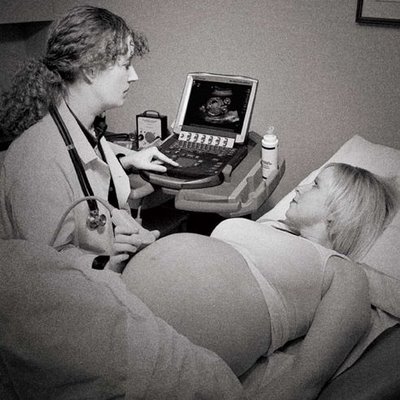An OB/GYN Resident’s Perspective: From an interview with an obstetrics and gynecology resident at Banner Good Samaritan, in Phoenix, Arizona.
Part of an interview series entitled, “Specialty Spotlights“, which asks medical students’ most burning questions to physicians of every specialty. See what doctors from every specialty had to say about why they chose their specialty and how to match in their residency.
- What attracted you to OB/GYN?
I enjoyed the opportunity of working with women over the course of their lifetime health care needs. From adolescent to geriatric patients you can develop life-long relationships with your patients and families. Labor and Delivery is exciting and fun to be a part of. Delivering patients was rewarding and the patients generally are very appreciative of your service. I also enjoyed working with the type of people who typically choose Ob/gyn as a career. I tried to talk myself out of it because of what others had to say, but throughout 3rd year medical school, every subsequent rotation came back to how much I enjoyed Ob/Gyn and I realized that I wouldn’t have been happier in any other specialty.
- Describe an OB/GYN typical work day?
Usually it starts early (to the hospital before 6 most days, this will get better after residency), postoperative and postpartum rounding on patients in the hospital then usually clinic 3-4 days per week. Most Ob/Gyn’s will have one full day of surgery per week. Depending on the group you practice with, you’ll be on call about every 4th night for deliveries and one weekend a month. Clinic may be interrupted by deliveries but they are usually quick.
- What type of lifestyle can an OB/GYN expect?
It is highly variable, if you choose to be on call for all of your patient deliveries, you can expect to be interrupted frequently as babies are born at all hours. However most practices will share call amongst the group and with other groups. Usually Ob/Gyn’s will be on call every 3rd-4th night and maybe one weekend a month. That is typically home call and you come in for deliveries only. Many Ob/gyn’s are working parents and often female with a relatively normal home and family life.
- What is the average salary of an OB/GYN?
Salary is highly variable based on call schedule and region but most will typically start in the low 200’s initially for most urban areas. Rural regions tend to start much higher but the call schedule can be more demanding as well. It is not unusual to increase significantly, again based on call schedule and delivery volume.
- What is the job market like for OB/GYN?
Great! As long as people keep having babies! There is a projected shortage in all aspects of medicine and Ob/Gyn is no different. You can typically find a job close to any area where you may want to live.
- What can you tell us about OB/GYN Sub-specialties?
All subspecialties are three year fellowships: Gynecologic oncology, Maternal Fetal medicine, Reproductive endocrinology and infertility and urogynecology. Salaries and lifestyles are generally improved with all of those specialties to varying degrees and there is always a market for them.
- What are the potential downsides of OB/GYN that students should be aware of?
Like I mentioned before, babies are born at all hours, especially at 3 o-clock in the morning. However you can make the schedule what you want, if you join a large group you’d have to take less call but you’d likely be busier during those call nights. Malpractice insurance and lawsuits are a well known downside to the field. As long as you understand this going into it and it is not a surprise, it will not be a problem.
- What else would you tell medical students who are considering OB/GYN?
In the end you choose a specialty that you really enjoy. Don’t choose solely based on lifestyle or salary. Don’t try to fool yourself either though, those things are important but if you hate your job, it makes for a miserable lifestyle.
Editor's Note: For more help choosing a specialty in medicine, I highly recommend one or both of these two great books. I found both very useful.







 My name is Andrew and I am a first year resident training to be an ophthalmologist. I created ShortWhiteCoats to provide medical students, residents, and the public with all the information I spent so many hours looking for during medical school.
My name is Andrew and I am a first year resident training to be an ophthalmologist. I created ShortWhiteCoats to provide medical students, residents, and the public with all the information I spent so many hours looking for during medical school.







